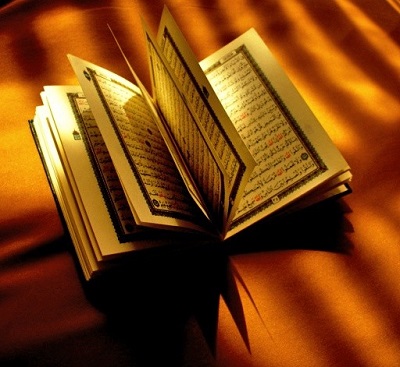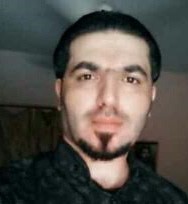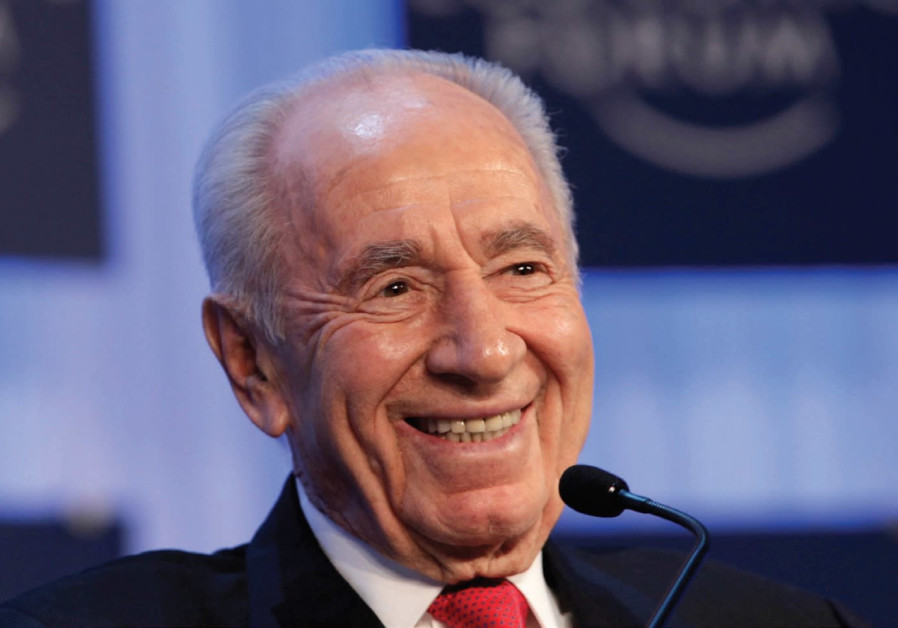 Jesteśmy rasistami, ale przypisujemy to Izraelowi
Jesteśmy rasistami, ale przypisujemy to Izraelowi
‘Ali ‘Abd Al-Karim Al-Sa’di
Tłumaczenie: Małgorzata Koraszewska
 W artykule zamieszczonym 28 lutego 2018 r. na liberalnej arabskiej stronie internetowej Al-Hiwar Al-Mutmaddin (ahewar.org)[1], iracki muzułmanin, ‘Ali ‘Abd Al-Karim Al-Sa’di ostro krytykuje muzułmańskich Arabów, mówiąc, że są rasistami, chciwcami, mają ekspansjonistyczne aspiracje i nienawidzą innych – niemniej przypisują wszystkie te cechy Izraelowi i wychowują swoje dzieci w nienawiści do Izraela, a także w nienawiści do wszystkich, którzy nie są muzułmańskimi Arabami.
W artykule zamieszczonym 28 lutego 2018 r. na liberalnej arabskiej stronie internetowej Al-Hiwar Al-Mutmaddin (ahewar.org)[1], iracki muzułmanin, ‘Ali ‘Abd Al-Karim Al-Sa’di ostro krytykuje muzułmańskich Arabów, mówiąc, że są rasistami, chciwcami, mają ekspansjonistyczne aspiracje i nienawidzą innych – niemniej przypisują wszystkie te cechy Izraelowi i wychowują swoje dzieci w nienawiści do Izraela, a także w nienawiści do wszystkich, którzy nie są muzułmańskimi Arabami.
Jako przykład arabskiej żądzy podbojów Al-Sa’di przedstawia sam Irak, który, jak pisze, nie był ani arabski, ani muzułmański, ponieważ był kiedyś zamieszkały przez ludzi z różnych kultur, religii i grup etnicznych przed pierwszym podbojem tego terytorium na początku ery islamskiej, kiedy muzułmańskie plemiona arabskie z Jemenu i Hidżazu przybyły i wmusiły miejscowym ludziom islam i arabską tożsamość. Wskazując na głęboko zakorzenioną nienawiść arabskich muzułmanów do innych, opisał jak irackie dzieci wychowuje się w wierze, że Sabejczycy [2] są nieczyści i że nie wolno kontaktować się z nimi ani przyjmować od nich żywności lub napoju. „Kto więc – pyta, nawiązując do arabskich oskarżeń wobec Izraela – jest nazistowskimi rasistami, którzy pałają żądzą ekspansji i podboju?” –.
Poniżej podajemy tłumaczenie fragmentów artykułu Al-Sa’di’ego:
Zawsze słyszymy, że Izrael jest źródłem rasizmu i zbrodni, że nienawidzi Arabów i muzułmanów, że jest chciwy, że ma ekspansjonistyczne zamiary oraz inne oskarżenia i hasła, którymi napełniają nam głowy od niemowlęctwa. Słyszę te rzeczy powtarzane w domu, na ulicy, w szkole, w meczecie i w mediach. Niestety, byłem kiedyś jednym ze stada, które akceptowało te idee lub tę ideologię narzuconą przez klasę rządzącą, bez zastanawiania się ani analizy. Równocześnie czasami umiem sobie wybaczyć, ponieważ dziesięć lat temu, kiedy byłem członkiem tego stada, miałem zaledwie 17 lat. Potem, kiedy zmądrzałem zacząłem myśleć i zadawać wiele pytań, zrozumiałem, że te oskarżenia przeciwko Izraelowi, przypisujące mu rasizm, ekspansjonistyczne aspiracje, chciwość i zbrodnie są cechami, w których my jesteśmy mistrzami a nie Izrael. Dlaczego więc oskarżamy o nie innych?
Zaraz to wyjaśnię. Jako muzułmanin, Arab, obywatel Iraku, będę mówił o moim kraju, który nie był pierwotnie ani arabski, ani muzułmański. Wszyscy są świadomi obecnych w nim kultur, a także historii Sumerów, Babilończyków, Asyryjczyków i Kurdów. Te ludy nie były Arabami ani muzułmanami, ale w okresie, który muzułmanie nazywają futuhat [tj. w czasie arabskiego podboju i po czasach proroka Mahometa] i z którego są dumni, podbili Irak i wmusili islam i arabską etniczność na mieszkańców tego kraju, mówiąc im]: „Płaćcie dżizja [pogłówne] lub nawróćcie się na islam”… i w ten sposób zarabizowali i zislamizowali kraj, wznieśli w nim etniczną [arabską] i islamską flagę kosztem innych grup etnicznych i religii, mordując miliony.
Każdy arabski obywatel Iraku wie, że pochodzimy z Jemenu i Hidżazu[3] i wiedzą to także szejkowie naszych plemion; jest to uważane za oczywiste. To stosuje się do mnie – moje plemię, arabskie plemię Al-Sa’di, jest pochodzenia jemeńskiego, nie irackiego. Moje plemię brało udział w islamizacji i arabizacji wielu innych grup etnicznych i religii, takich jak Sabejczycy i Mandejczycy[4] w południowym Iraku, szczególnie w mieście Majsan, w regionie Al-Musharrah [w południowowschodnim Iraku na granicy z Iranem], gdzie żyło wielu Sabejczyków i ten region był uważany za ich ważny bastion. Pod groźbami zmuszono ich do stania się Arabami, do tego stopnia, że Al-Muszarrah i miasto Majsan zostały niemal opustoszałe, a tych kilka rodzin, które pozostały, wyemigrowały po wojnie irackiej 2003 r.
Znam wielu członków innych grup etnicznych żyjących w moim mieście… którzy zostali zmuszeni do dołączenia do plemion arabskich, ponieważ natura społeczeństwa jest arabska i plemienna. Nasze plemiona prowadzą wojnę psychologiczną przeciwko każdemu, kto próbuje czerpać dumę z przynależności do swojej własnej grupy etnicznej i odmawia dołączenia do nas. Szkodzi się jego bezpieczeństwu, zarobkom, więzom społecznym i dobremu imieniu oraz honorowi, używając przeciwko nim wszystkich metod beduińskiej agresji.
Jak wiemy, granicami starożytnego państwa arabskiego były tylko Hidżaz i Jemen, a tam żyli również Żydzi, chrześcijanie i wielu przeciwników islamu, którzy zostali zamordowani w bitwie z Banu Kurajza[5], i są tam muzułmanie, którzy wstydzą się tej bitwy i prób napisania na nowo historii. Syria, Liban, Egipt, Algieria, Maroko, Tunezja i inne nie są arabskimi krajami, ale stały się nimi przez siłę najazdu i przez siłę morderstw i masakry ich mieszkańców. Arabski podbój w czasach wczesnego islamu, który dotarł do Indii i Europy, nie powiódł się, i chwała Allahowi za to, ponieważ, gdyby im się udało, te kraje byłyby teraz arabsko-islamskie, a Arabowie nazywaliby jej „źródłem arabizmu” [manba’ al-‘urouba], tak jak nazywają Irak „umysłem Arabów” [jamjamat al-‘arab].
Poniżej jest przykład związany z postawą arabskich muzułmanów wobec Sabejczyków: kiedy byłem w szkole podstawowej, mieliśmy w klasie uczniów wyznania sabejskiego. Wyśmiewaliśmy ich i wykluczaliśmy ich, a kiedy jeden z nich przynosił nam żywność i wodę, wyrzucaliśmy to do śmieci na jego oczach, bez zastanawiania się nad tym, co on czuł. Czy wiecie, dlaczego? Ponieważ wychowano nas w wierze, że Sabejczycy są nieczyści i że kontakt z nimi zbruka nasze ciała, więc nie możemy jeść ani pić niczego, co jest ich. To słyszeliśmy i robiliśmy to nie zastanawiając się, bo byliśmy bardzo młodzi. W dodatku do tego powtarzaliśmy dziesiątki fałszywych oskarżeń, których nauczono nas, a które były haniebne.
Z czasem zrozumiałem, że wszystko, co nam powiedziano, jest kłamstwem, i zrozumiałem siłę rasizmu i nienawiści Arabów wobec innych. To jest nieopisane zjawisko, najbardziej haniebne i przerażające. Nienawiść do innych tylko z powodu różnic rasy, grupy etnicznej lub religii jest nieusprawiedliwiona. Na Allaha, czy to jest sprawiedliwe? Czy to jest prawda? Kto więc jest nazistowskimi rasistami, którzy pałają żądzą ekspansji i podboju? Także ich idea Boga, życia w następnym świecie i raju jest nienawistna, rasistowska i nazistowska. Zawsze twierdzą, że „Koran jest arabski i język mieszkańców raju jest arabski!”. Uważają, że Stwórca i raj są tylko i wyłącznie ich.
Och, Arabowie, Koran jest arabski, ale to nie jest osiągnięcie z waszej strony, ani powód do dumy. Sam Koran zadaje wam kłam w więcej niż jednym z wersetów. Jeden z wersetów brzmi: „Oto uczyniliśmy Koranem arabskim, byście mogli zrozumieć! [43:3]” To znaczy, że Koran został zniżony do waszego języka, by stanowić świadectwo przeciwko wam [w Dniu Sądu Ostatecznego] – oczywiście, jeśli uznajecie prawdę Koranu. Jeśli chodzi o wasze twierdzenie, że językiem mieszkańców raju jest arabski, to pomniejsza to Stwórcę, ponieważ On nie jest Arabem i nie należy do żadnej grupy etnicznej i Arabowie nie mają na Niego monopolu.
Dlaczego okupacja jednego kraju przez Izrael – zakładając, że istotnie jest to okupacja – uważana jest za zbrodnię zabronioną przez prawo islamskie, podczas gdy nasza okupacja i ataki na ponad 20 krajów [we wczesnym islamie] są dozwolone według tego samego prawa religijnego i uważacie je za mile widziane okupacje?! Co gorsza, żałujecie, że pozostałe napaści, w Andaluzji, Indiach i innych miejscach nie poszły tak dobrze. Co za bezczelność!
Żałuję, że przez 17 lat życia byłem wprowadzony w błąd. Wzbudziło to we mnie wewnętrzną reakcję, powodując, że nienawidzę moich związków, mojego pochodzenia, mojej grupy etnicznej i od teraz wstydzę się, kiedy mówię, że jestem Arabem.
To, co Arabowie myślą i co robią jest dziwaczną kombinacją podwójnych standardów i sprzeczności… których miejsce jest, moim zdaniem, w szpitalu psychiatrycznym. Nie wiem jednak, dlaczego świat pozwala im kontynuować ten nonsens i toleruje ich! I kiedy Arabowie dostrzegą, że są umysłowo ułomni?!
[1] Al-Hiwar Al-Mutamaddin przedstawia się jako lewicowa, świecka i demokratyczna strona internetowa, gdzie publikuje wielu arabskich intelektualistów zmierzających do szerzenia świeckości w świecie arabskim.
[2] Sabejczycy byli etniczno-religijną grupą ludzi, którzy żyli na Bliskim Wschodzie przez stulecia przed powstaniem islamu. W Koranie wspominani są jako „Lud Księgi” obok Żydów i chrześcijan i czasami zaratusztrian.
[3] Hidżaz, region zawierający Mekkę, ma unikatowe znaczenie historyczne, religijne i polityczne dla Arabów i muzułmanów.
[4] Mandejczycy byli etniczno-religijną grupą z unikatową religią i językiem, którzy żyli głównie w południowym Iraku, gdzie obecnie jest irański prowincja Chuzestan. Wierzyli, że Jan Chrzciciel był najważniejszym z proroków i że Abraham, Mojżesz, Jezus i Mahomet są fałszywymi prorokami.
[5] Banu Kurajza byli plemieniem żydowskim, żyjącym do VII w. w Jathrib (dzisiejsza Medyna) wraz z innymi żydowskimi plemionami, Banu Nadir i Banu Kajnuka. W piątym roku po Hidżra (627 AD), kiedy wzrosły napięcia między muzułmanami a Żydami, muzułmanie pod dowództwem Mahometa założyli oblężenie Medyny i pokonali Żydów. Wszyscy żydowscy mężczyźni, którzy odmówili nawrócenia się na islam, zostali zabici, a kobiety i dzieci wzięto do niewoli i zmuszono do nawrócenia się.
 ‘Ali ‘Abd Al-Karim Al-Sa’di (zdjęcie: Shafaaq.com)
‘Ali ‘Abd Al-Karim Al-Sa’di (zdjęcie: Shafaaq.com)
Zawartość publikowanych artykułów i materiałów nie reprezentuje poglądów ani opinii Reunion’68,
ani też webmastera Blogu Reunion’68, chyba ze jest to wyraźnie zaznaczone.
Twoje uwagi, linki, własne artykuły lub wiadomości prześlij na adres:
webmaster@reunion68.com


 MON PERES smiles during the annual meeting of the World Economic Forum (WEF) in Davos in 2013.. (photo credit: REUTERS)
MON PERES smiles during the annual meeting of the World Economic Forum (WEF) in Davos in 2013.. (photo credit: REUTERS)